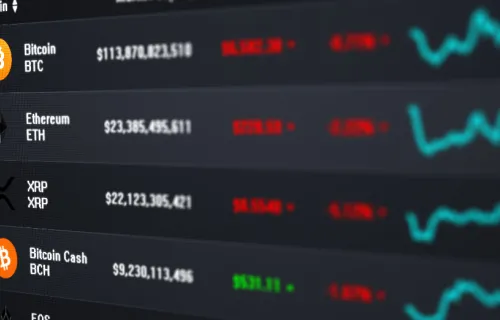At an energy conference recently, I was speaking with another attendee. When the topic of blockchain came up, my colleague said something very insightful that stuck with me. He said – “I think the blockchain buzz is mostly hype, peppered with a few viable use cases.” It was refreshing to hear this because so much blockchain coverage makes it sound like the cure for every societal ill and business problem.
But given the current buzz, and the amount of venture capital being poured into new blockchain start-ups (2018 is on pace to exceed last year’s $900M+ in VC funding), it would be easy to think blockchain could potentially live up to the hype.
So how do you cut through the noise to know if blockchain is the solution you are looking for?
First, a quick note: if you’re unclear about the details of blockchain, let me point you to some blogs that provide an overview of the technology, ponder its impact on infrastructure, and discuss its potential application in business and government. Since much of this ground has been covered, my focus is less about what blockchain can do, and more about questions to help you determine what blockchain can do for you.
Which brings me to the first question to ask yourself: Does it make sense?
Blockchain is no different than any other IT innovation – it is ideally suited for some applications more than others. The art is to identify the right ones. As you contemplate whether a blockchain solution makes sense, first define the problem you are trying to solve, then ask if is there’s an existing technology that quickly and easily can solve it. There probably is. It’s not as cool as blockchain, but what is?
Many of the “hyped” blockchain solutions out there simply are replacing tried and true solutions which, as it turns out, are still more efficient, cheaper, and easier to deploy and maintain than their blockchain counterparts. This is why some feel blockchain is a solution in search of a problem.
Does your problem have any of the following criteria?
- Does it require a database?
- Is establishing trust between all the parties an issue?
- Are there multiple entities involved in a transaction?
- Do you require transparency or immutability?
If the answer to any of these is “no,” you probably don’t need a blockchain-based solution.
Where blockchain makes sense
Blockchain makes sense in situations requiring a solution that is both auditable and immutable, meaning normally you would need third-party verification and a recorded chain of custody which could not be altered. For example, in a true peer-to-peer energy exchange, a prosumer (someone who both consumes and produces energy) would need to have an auditable record of the energy they produced, consumed, and sold. A consumer would need a similar record of the energy they consumed. In today’s world, both would want a third-party to verify the transactions since the prosumer and the consumer would not actually know each other.
In such an exchange, there would be thousands, if not potentially millions, of micro-transactions that would need to be reconciled. Blockchain provides a trusted record of all the transactions and an exchange that allows for rapid reconciliation of transactions.
If raising the trust bar is important to solving your problem, blockchain might be your solution. If you want to track your energy consumption back to its source, a blockchain solution can provide that proof. Blockchain acts as a type of “certificate of authenticity,” but it is far harder to steal, forge, or alter than a piece of paper or a centralized database. When everyone within the blockchain network can see every transaction and verify those transactions against the digital ledger of their neighbor, you raise the trust bar substantially.
Most viable business projects in the energy sector will be private, permission-based ventures which cover the transaction lifecycle from end-to-end. You won’t see publically traded cryptocurrencies associated with these. Blockchain will be used for back office settlements, payments, and chain of custody situations where the potential cost savings and process efficiencies are too compelling to ignore.
In summary, blockchain may be the cool, new kid on the block (pun intended). However, once the hype and newness wear off, you begin to see blockchain is only applicable in specific circumstances. What is needed is less hype, more practical every-day application; cross vendor standardization; and increased adoption by mainstream technology providers. So make sure you first understand your problem and then seek out your solution.
For a more in-depth view of some practical applications of blockchain, I recommend the whitepaper “Opportunities for blockchain in the energy sector.”





